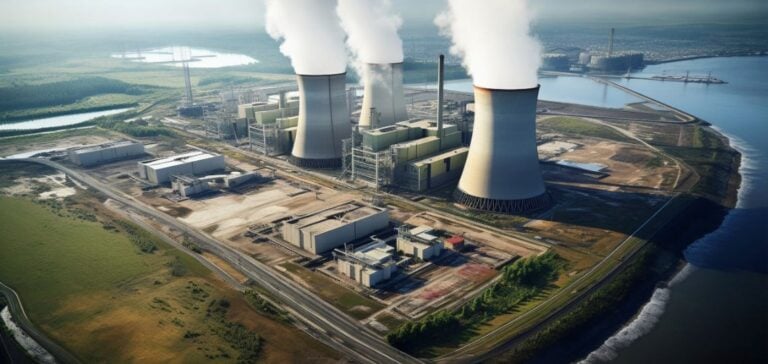The United Nations Climate Change Conference (COP29), currently taking place in Baku, Azerbaijan, marked a significant milestone for global nuclear energy. Six new countries – El Salvador, Kazakhstan, Kenya, Kosovo, Nigeria, and Turkey – have joined the declaration initially adopted at COP28. This initiative aims to triple global nuclear capacity by 2050 compared to 2020 levels.
According to the World Nuclear Association (WNA), this brings the number of countries supporting this ambitious vision to 31, with the backing of 14 major international financial institutions. The signatories include the United States, Canada, Japan, France, the United Kingdom, and the United Arab Emirates.
Commitment to global decarbonization
The declaration calls for an increase of approximately 750 gigawatts (GW) in nuclear capacity by 2050, far exceeding current plans. According to forecasts by S&P Global Commodity Insights, global nuclear capacity is expected to grow by 58% by 2050, reaching 631 GW. The two largest contributors will be China and the United States, which together will account for more than half of the total capacity.
To achieve this target, the signatories will support projects such as small modular reactors and other advanced technologies, suitable for electricity production and industrial applications like hydrogen or synthetic fuel production.
Growing financial support
Financial backing is a central pillar of this ambition. During Climate Week in New York in September, 14 major financial institutions, including Goldman Sachs, Barclays, and BNP Paribas, announced their support for this initiative. These financial groups also encourage the World Bank and other organizations to include nuclear energy in their energy lending policies.
Sama Bilbao y León, Director General of the WNA, highlighted the importance of this commitment: “Nuclear now enjoys the support of the world’s largest banks and most advanced technology companies.”
The new signatories and their projects
None of the six new signatories currently operate nuclear power plants, but several have launched promising initiatives. In Turkey, four reactors are under construction at Akkuyu, with funding and expertise from Russia. These reactors are expected to provide a total capacity of 4.5 GW.
El Salvador has recently created a federal agency to develop a nuclear program. The country has also signed an agreement with Argentina to enhance its technological capabilities. Kazakhstan, the world’s largest uranium producer, is exploring national projects to meet its growing energy demands.
Kenya and Nigeria are considering nuclear energy for electricity generation and addressing challenges like desalination. These projects reflect a diversification of energy solutions for developing nations.
Extending and modernizing existing infrastructure
In addition to constructing new facilities, the declaration emphasizes the importance of extending the lifespan of existing reactors. This strategy aims to maximize their contribution to decarbonization while minimizing the costs of new constructions.
The signatory countries pledge to promote international cooperation policies and support nations ready to responsibly adopt civil nuclear technologies.






















